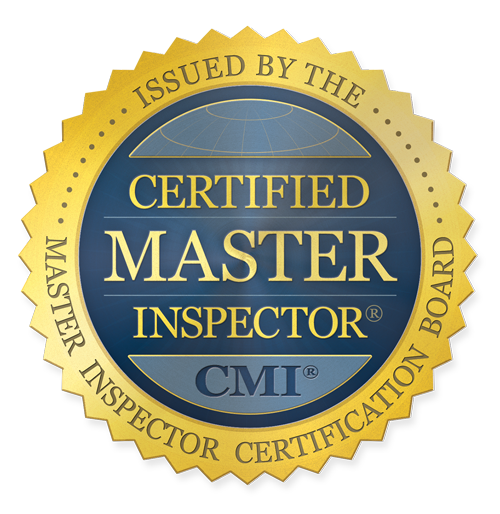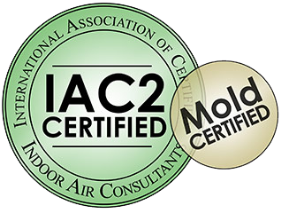You just moved into a brand new home built by one of Volusia County’s most well-respected construction firms. So why would you need a home inspection? Aren’t those for older homes?
Not at all. Even the best of contractors – or subcontractors – make mistakes, which is why it’s essential to schedule a third-party inspection.
New-Construction Homes Deserve a Professional Home Inspection
These inspections aren’t designed to “find fault” with the builder. In fact, most of the time, our inspectors are impressed with the level of workmanship inherent in the new homes we inspect. Even so, there are common structural or “red flag” issues that still show up during most home inspections.
These items often don’t show up in the day-to-day use of the home (such as an electrical outlet that doesn’t work or a cold water faucet that runs hot water). Nor are they immediately evident in the visible interior and exterior of the home, or the builder would have caught them during their walk-throughs.
A professional, third-party inspection of your new construction home provides a detailed punch list your contractor, and subcontractors use to correct the issues before they cause problems OR before they slip under the radar and wind up on the other side of your one- or two-year builder’s warranty.
3 Common Issues Found in New Construction or Remodels
This article focuses on new home construction, but we also recommend scheduling an inspection if you’ve recently completed a remodel or home renovation. The same tenets apply.
Inspecting a new home’s systems and structural integrity is the only way to catch these three common “red flags,” all of which are invisible to the naked or inexperienced eye.
1) Faulty grading or foundation issues
Once the building department signs off on grading, drainage, and foundation inspections, the contractors don’t pay these items much attention. Then, they’re off and running, framing and building the homes. Unfortunately, this means any issues the local building inspector may have missed or overlooked become part of “history.”
In the meantime, the ground beneath the home continues to settle, the foundation might crack, or poor job site erosion control undoes the original grading and drainage work.
Finding issues with grading and drainage or cracked or faulty foundations is not uncommon. Yet, these are issues most homeowners are never going to recognize on their own. The sooner they are repaired, the better because, over time, these issues can lead to tens of thousands of dollars worth of damage or repairs.
Even if a builder’s 10-year warranties cover these structural defects, it is always preferable to address them before moving into the home or shortly after that.
2) Issues with the roofing system
Your new roof may look gorgeous from the outside. But, underneath the roof, in the attic, we may see another story. Florida roofs must be able to withstand high storm winds and lots of rain. Any imperfections in roof fasteners, flashing, drainage systems, or even a single penetration from a roofing nail through the waterproofing underlayments compromise the integrity of your roof and your home.
These are the kinds of things your homeowner’s insurance company wants to know before insuring your home – even if it’s brand new. So, in addition to allowing the roofing contractor the opportunity to correct any mistakes before the next storm season, our report (and your proof of repaired items) ensures your home will be insured – and at the lowest premiums.
You’ll rest much easier knowing the new roof investment can stand up to DeLand area wind, rain, and hurricanes and that any failures have nothing to do with contractor error, poor-quality materials, or shoddy workmanship.
3) “Minor” plumbing leaks
Minor plumbing leaks are not insignificant at all if they are in areas that make them difficult to detect. Slow leaks occurring underneath the floors and interior walls have a sneaky way of continuing sight unseen for extended periods.
By the time these moisture issues reveal themselves, your home may have damaged flooring, structural rot, mold/mildew infestations, or ruined drywall or siding. In addition, all that slow leaking water means you paid incrementally more for your water services, and that adds up to quite a bit over the course of months. We have caught underground water leaks that went undetected for years, and that is not the type of scenario you want to experience.
Other Common Issues Found in a New Home Inspection
Some of the other issues we encounter when inspecting new construction homes include:
- AC vents covered by drywall
- Electrical work that isn’t up to code
- Missing grout/caulking
- Railings that aren’t complete
- Missing hardware
- Loose pavers
- Sticky windows, cabinets, drawers, etc.
- Cabinet issues (misaligned, faulty tracks)
- Loose floor or shower tiles
- Incomplete air sealing
All of these issues, and any others we find, are noted on the detailed inspection report.
Why Not Wait Until the 11-Month Warranty Inspection?
New construction warranties range from one- and two years to 10-years, depending on the system or structural component involved in the defect or malfunction. As a result, most homeowners figure they’ll rely on the 11-month Warranty inspection. This isn’t a good idea, as it puts you at risk for taking partial or full responsibility.
Warranties are funny things. They make the buyer feel safe, but they are often designed so that manufacturers, vendors, or contractors have the legal upper hand. For example, Florida’s laws around builder warranties talk about the scenarios and time limits for the warranty but go on to state:
…except that, when the action involves a latent defect, the time runs from the time the defect is discovered or should have been discovered with the exercise of due diligence.
In other words, the onus is on you as the homeowner to perform the “due diligence” and “discover” what’s wrong. Scheduling a pre-close or pre-move-in inspection from a licensed, experienced home inspector is proof that you’ve done your due diligence.
And, we’ll be honest: while 11 months may sound like plenty of time from now, time moves pretty quickly. We can’t tell you how often we’ve been called to perform home inspections preceding a real estate transaction or as proof for homeowner’s insurance carriers only to find issues that should have been noted previously. Most often, these items were never discovered because the owners forgot to schedule the 11-month inspection in time – or skipped it altogether because “everything seemed fine.”
Do your contractors, your home, and yourselves a favor. Schedule a new-construction home inspection with the Super Inspection Pros before the COE or before you move in to ensure you’re moving into a home that will perform as advertised.

